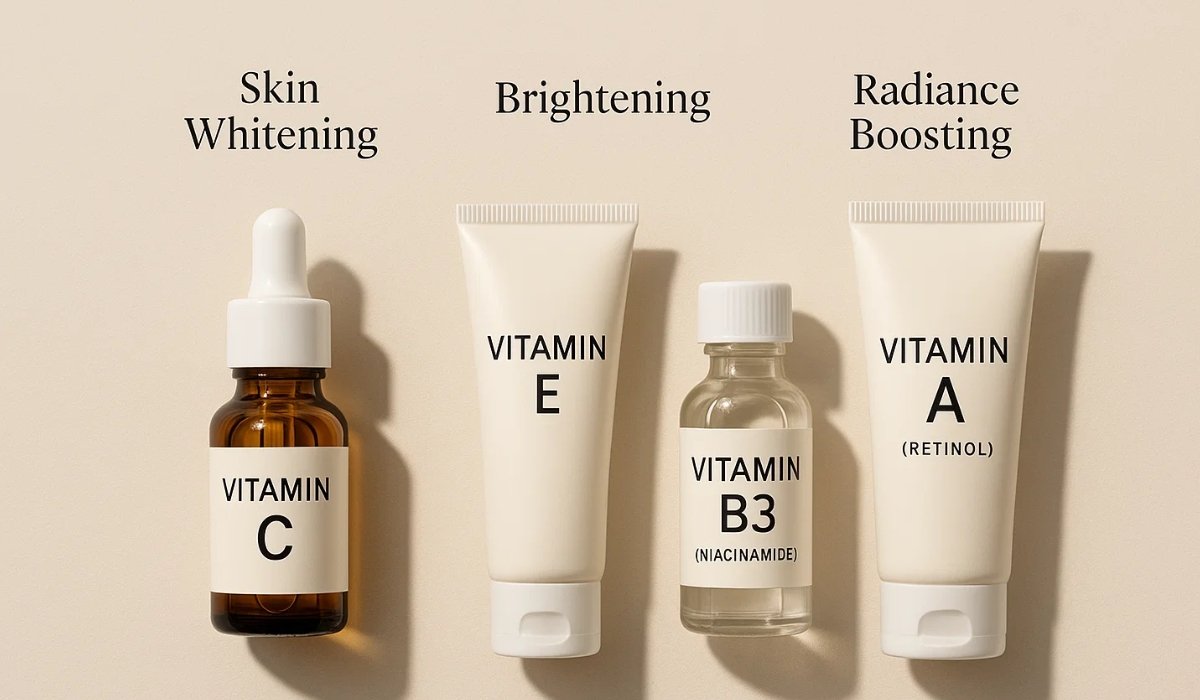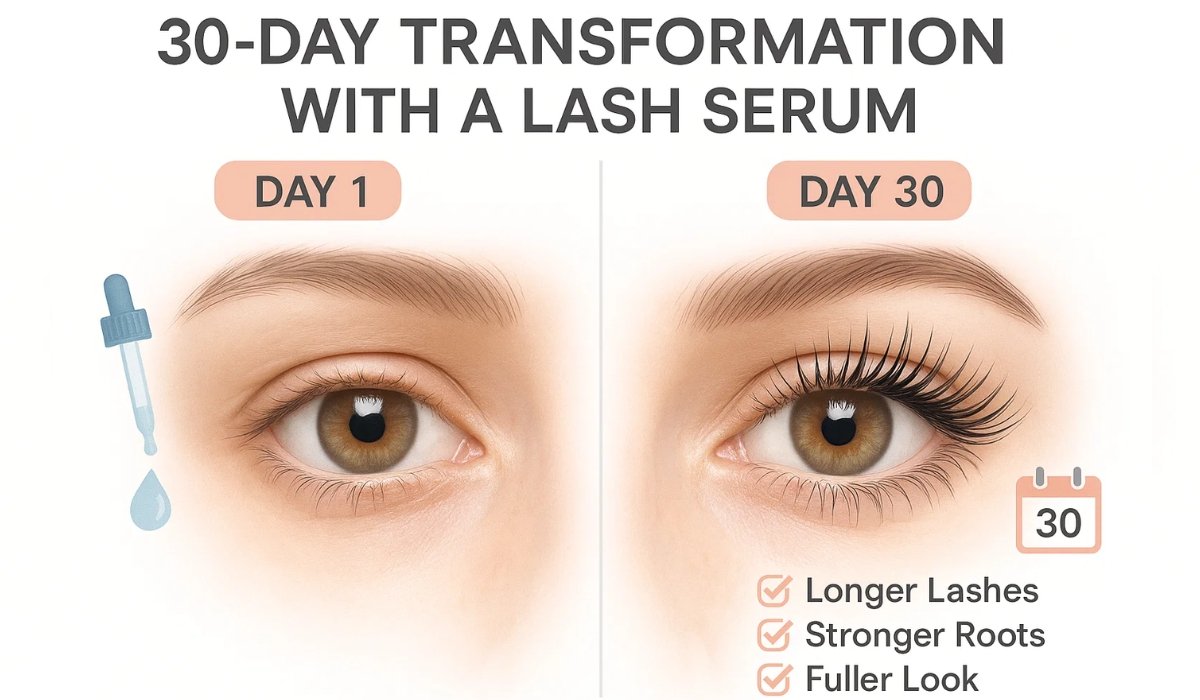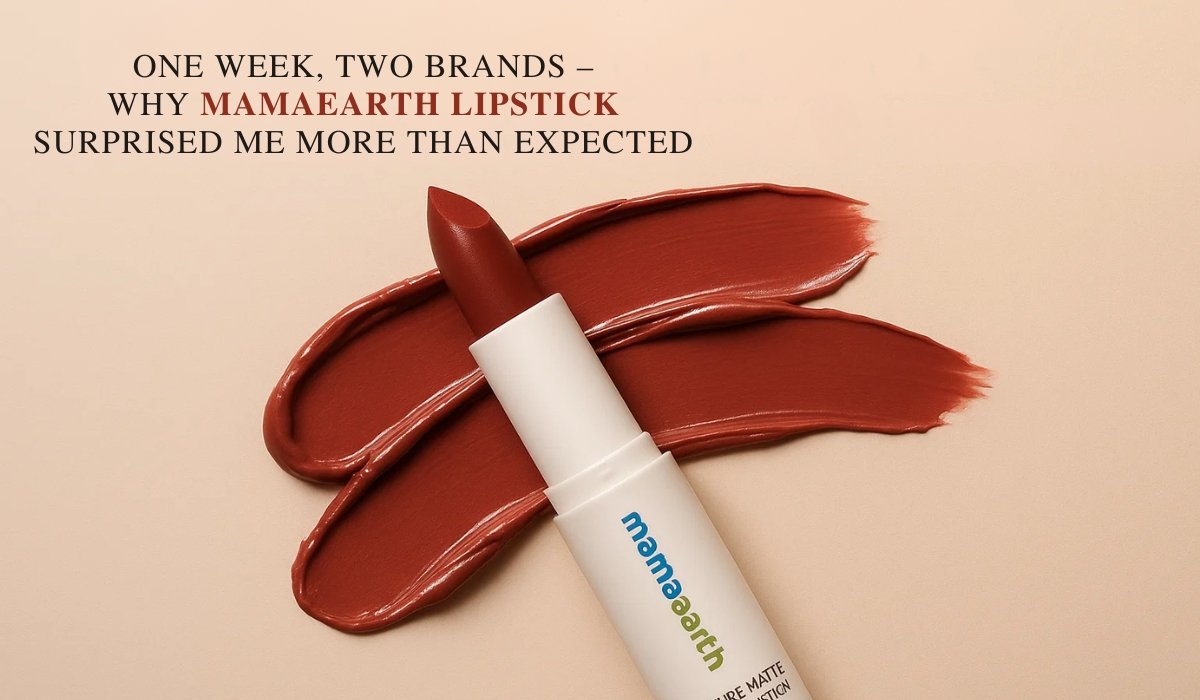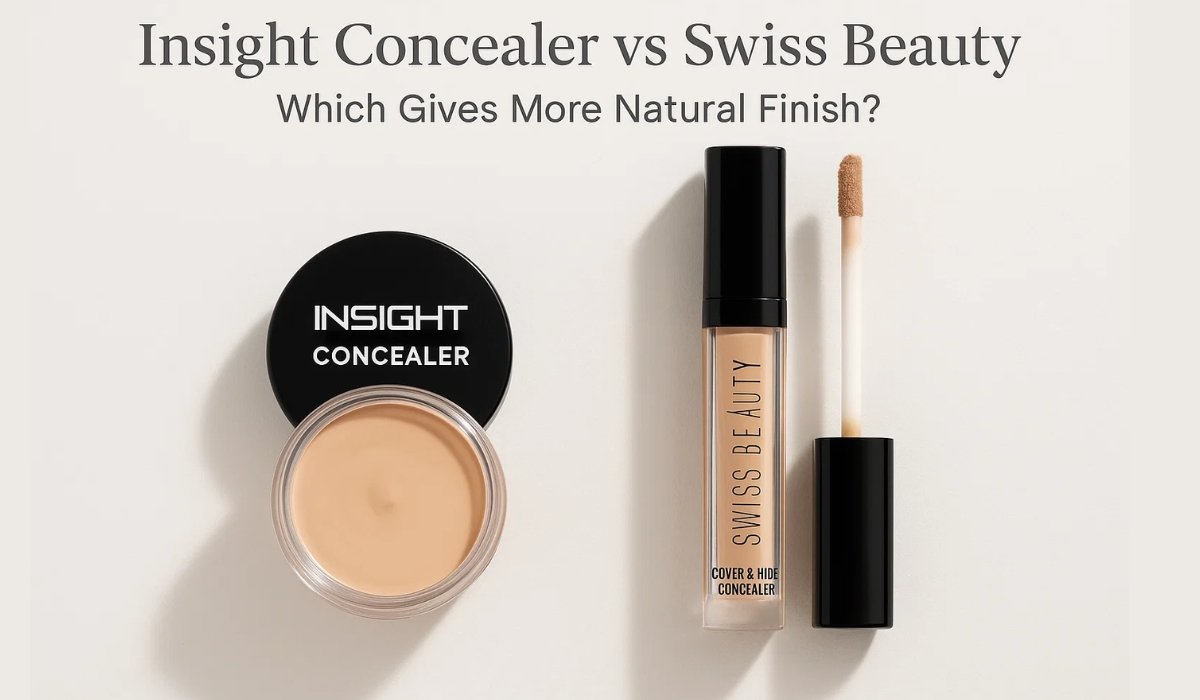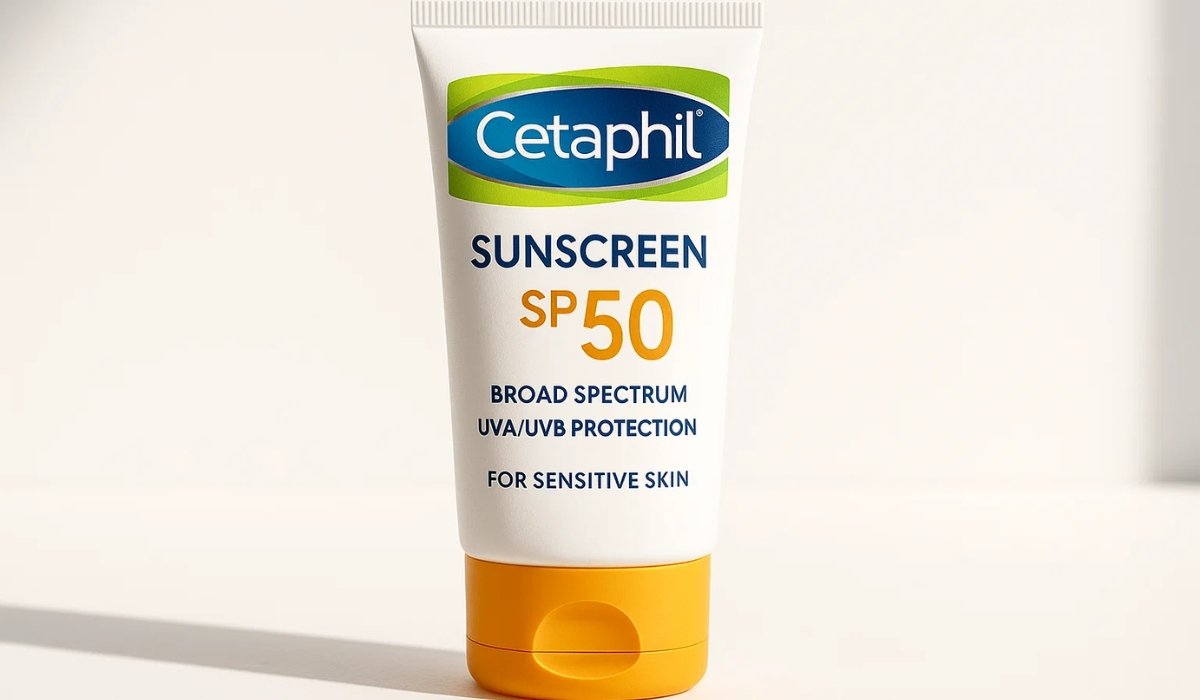If you’re wondering, “Which Vitamin is Best for Skin Whitening?”, you’re not alone. Bright, even-toned, and radiant skin is one of the most searched-for beauty goals. But before choosing a supplement or serum, it’s important to know which vitamins truly help lighten pigmentation, reduce dark spots, and promote natural radiance.
In this guide, we’ll explore science-backed vitamins, Which Vitamin is Best for Skin Whitening, how they work for skin lightening, and the safest way to use them.
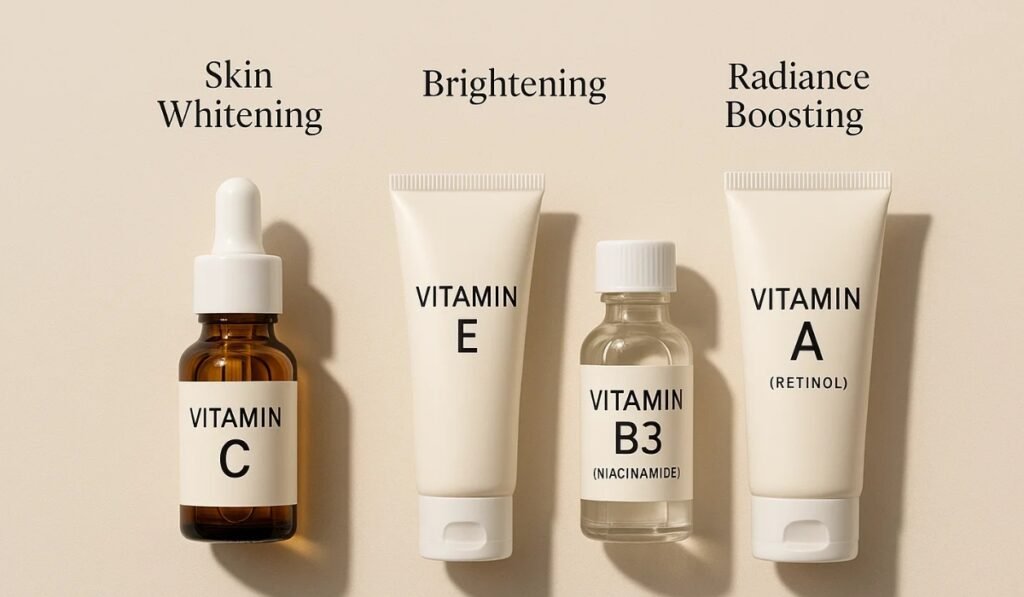
What Makes a Vitamin Effective for Skin Whitening?
Before jumping to Which Vitamin is Best for Skin Whitening, let’s understand the science. A vitamin works for whitening if it:
- Reduces melanin production (the pigment responsible for skin color)
- Fights oxidative stress (to prevent dullness and damage)
- Supports collagen (for firmness and glow)
- Boosts skin repair (to fade scars and dark spots)
Which Vitamin is Best for Skin Whitening?
The top vitamins dermatologists recommend are:
1. Is Vitamin C Best for Skin Whitening?
Yes ✅ Vitamin C is considered the most effective.
- How it works: Inhibits tyrosinase enzyme (controls melanin).
- Results: Brighter skin, fewer dark spots, antioxidant protection.
- Best form: Ascorbic Acid (10–20%) serums in the morning.
- Expert Note: “Vitamin C is my first choice for patients with pigmentation—it’s safe, effective, and doubles as anti-aging.”
2. Can Vitamin B3 (Niacinamide) Help in Skin Whitening?
Absolutely!
- How it works: Blocks pigment transfer to skin cells.
- Results: Even skin tone, reduced yellowing, stronger skin barrier.
- Best use: 5–10% Niacinamide serum (AM/PM).
- Why unique: Gentle, suitable even for sensitive skin.
3. Is Vitamin A (Retinol/Retinoids) Good for Whitening?
Yes, but with caution ⚠️
- How it works: Speeds up cell turnover to fade scars & pigmentation.
- Results: Lighter dark spots, smoother texture, anti-aging effect.
- Best use: Retinol at night (start with 0.1–0.3%).
- Expert Note: Needs sunscreen daily; not recommended during pregnancy.
4. Does Vitamin E Work for Skin Whitening?
Indirectly.
- How it works: Antioxidant, repairs sun damage, prevents pigmentation.
- Results: Glow + hydration, especially when paired with Vitamin C.
- Best use: Vitamin E oil/cream at night OR Vitamin C + E serums.
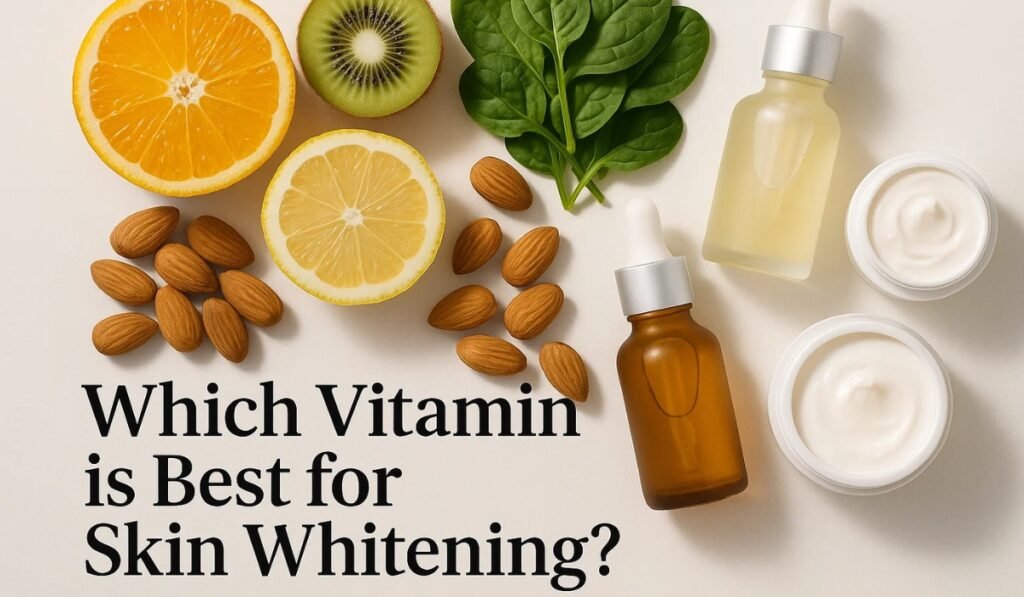
5. Is Vitamin K Useful for Brightening?
Limited but helpful.
- How it works: Reduces dark circles, strengthens skin.
- Results: Not a whitening vitamin, but supports radiance.
Comparison Table: Best Vitamins for Skin Whitening
| Vitamin | Works For | Best Use | Key Benefit |
|---|---|---|---|
| Vitamin C | Brightening, spot reduction | AM serum | Strong antioxidant + whitening |
| Niacinamide | Tone correction, barrier | AM/PM serum | Gentle + effective |
| Vitamin A | Pigmentation, scars, anti-aging | PM (night) | Powerful but needs care |
| Vitamin E | Glow + repair | PM/topical | Best when combined |
| Vitamin K | Dark circles, support care | Topical | Limited whitening |
How to Choose: Which Vitamin is Best for Skin Whitening for You?
- Sensitive skin? → Start with Niacinamide
- Dark spots & sun damage? → Go for Vitamin C
- Deep scars/aging + pigmentation? → Use Vitamin A (Retinol)
- Need glow + hydration? → Add Vitamin E
Expert Insight (E-E-A-T)
Dr. Smita Priyadarshni, Dermatologist (Delhi):
“Vitamin C is a game-changer for skin whitening, but people should not rely only on oral supplements. Topical serums with stable Vitamin C combined with Vitamin E show the fastest and safest results.”
Tanvir Kaur, Fashion & Lifestyle Blogger:
“From a fashion and beauty perspective, healthy glowing skin always complements your outfit. I always recommend readers to add Vitamin-rich skincare into their daily routine rather than chasing chemical shortcuts.”
People Also Ask
Q1: Can I take vitamins orally for skin whitening?
Yes, but results are slower. Oral Vitamin C and Niacinamide support skin health, but topical serums give faster visible effects.
Q2: How long do vitamins take to whiten skin?
On average, 8–12 weeks of consistent use is needed for visible brightening.
Q3: Can I combine multiple vitamins for whitening?
Yes ✅ Many dermatologists recommend Vitamin C (day) + Niacinamide (night) or Vitamin C + E (day). Always patch-test first.
Q4: Which vitamin is safest for daily skin whitening?
Niacinamide is the safest and most well-tolerated for everyday use.
Key Takeaways
- The answer to Which Vitamin is Best for Skin Whitening? is Vitamin C – the gold standard for brightening.
- Niacinamide (B3) is equally effective for sensitive skin.
- Vitamin A is powerful but requires careful use and sunscreen.
- Vitamin E enhances glow when paired with Vitamin C.
- Visible results take 2–3 months of consistent routine.
- Always patch-test new products and consult a dermatologist for severe pigmentation.
Conclusion
If you’re still asking, Which Vitamin is Best for Skin Whitening?, the simple answer is: Vitamin C for most people, Niacinamide for sensitive skin, and Retinol for stubborn pigmentation. Remember, true radiance comes from consistency, healthy diet, sun protection, and the right products.
✨ Want to stay updated with beauty, skincare, and fashion tips that make you glow inside and out?
👉 Explore Dhawan Suits for more skincare and fashion inspiration.
About the Author
Tanvir Kaur is a fashion and lifestyle blogger who shares authentic insights on Telegram. With experience in festive fashion, everyday style, skincare, and lifestyle, she blends personal expertise with research to guide readers in looking and feeling their best.
